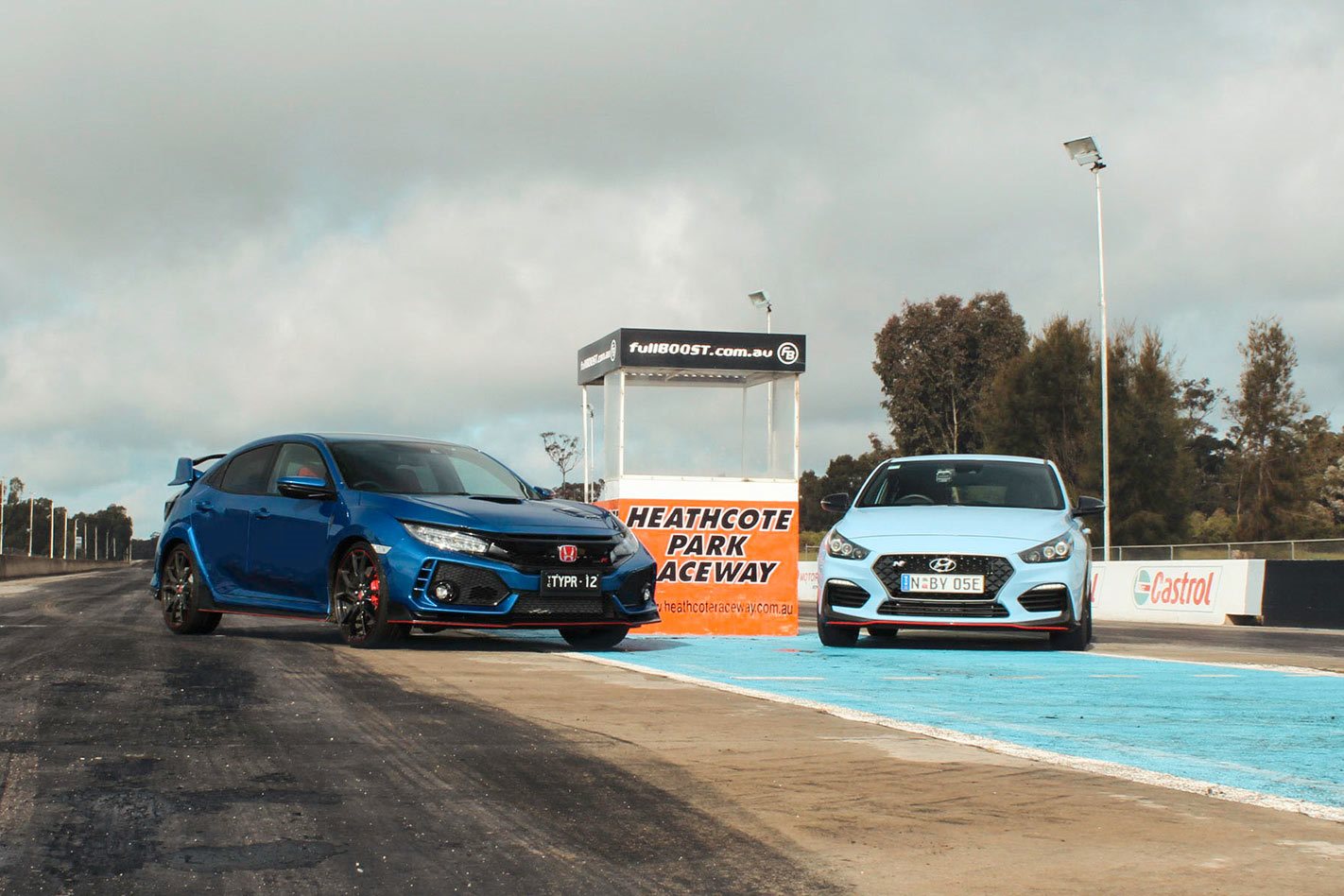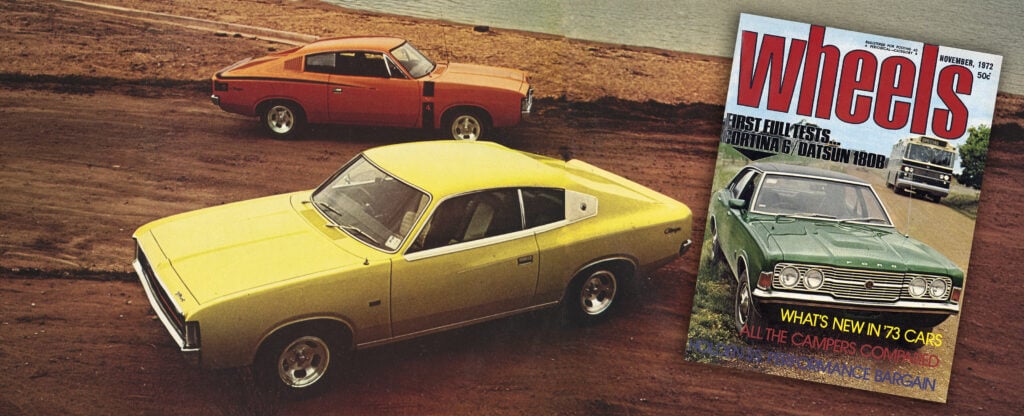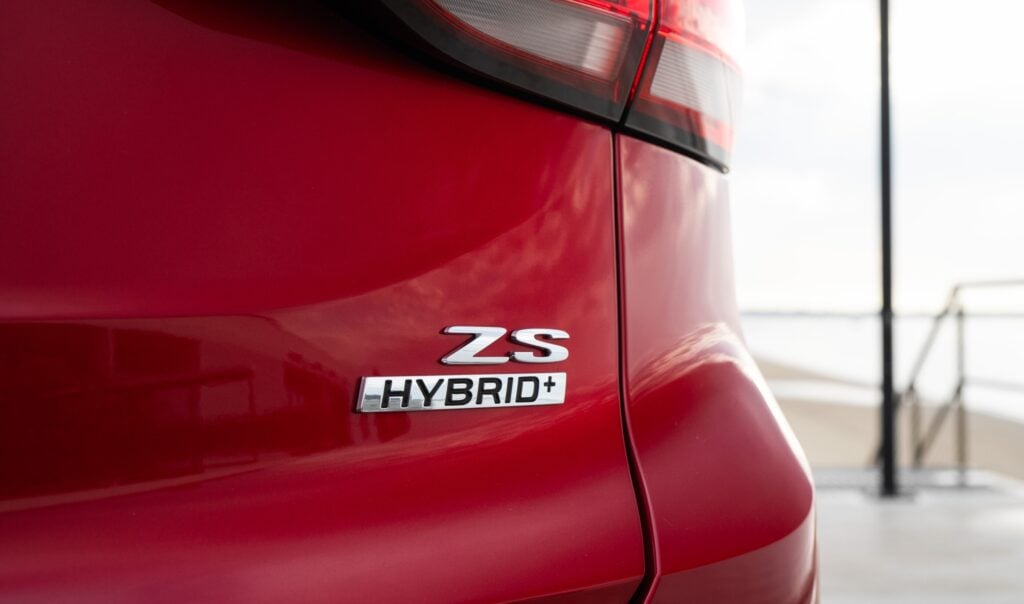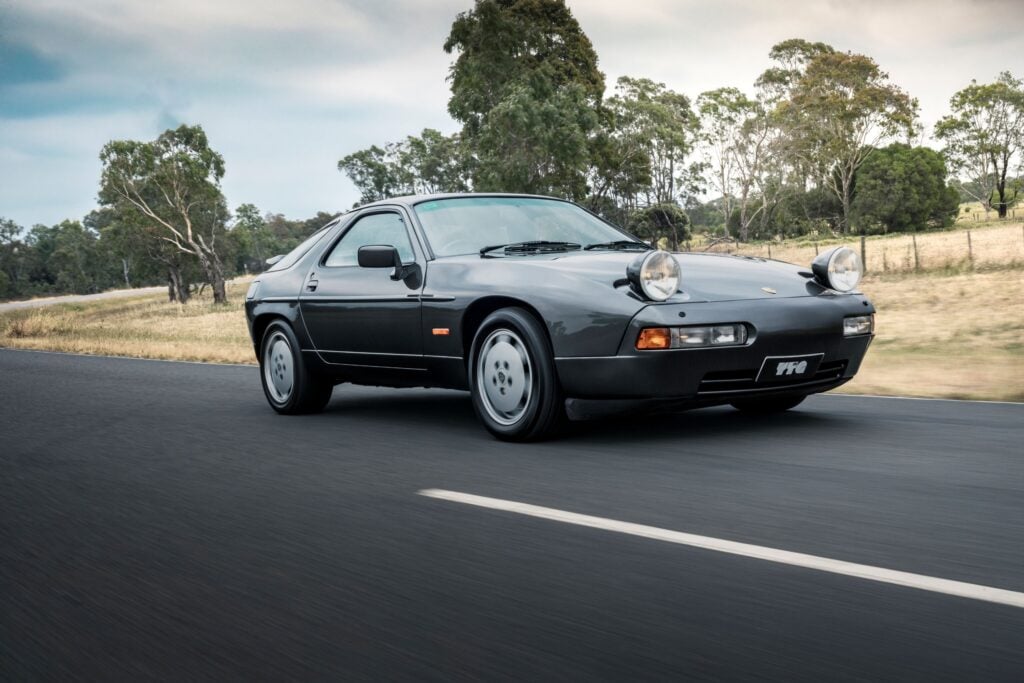When it comes to the current hot hatch market, customers are spoiled for choice – there is a glut of excellent options to choose from.
But here at Wheels HQ, the two traditionally viewed as the top of the table are the Hyundai i30 N and Honda Civic Type R.
We had both in for a three car comparison test against the Ford Focus ST (which you’ll be able to read very soon), but we wanted to find out which of the pair was quicker in a straight line.
So it was that we found ourselves at Heathcote Raceway with both the $51,990 Honda Civic Type R and $42,910 Hyundai i30 N Fastback.
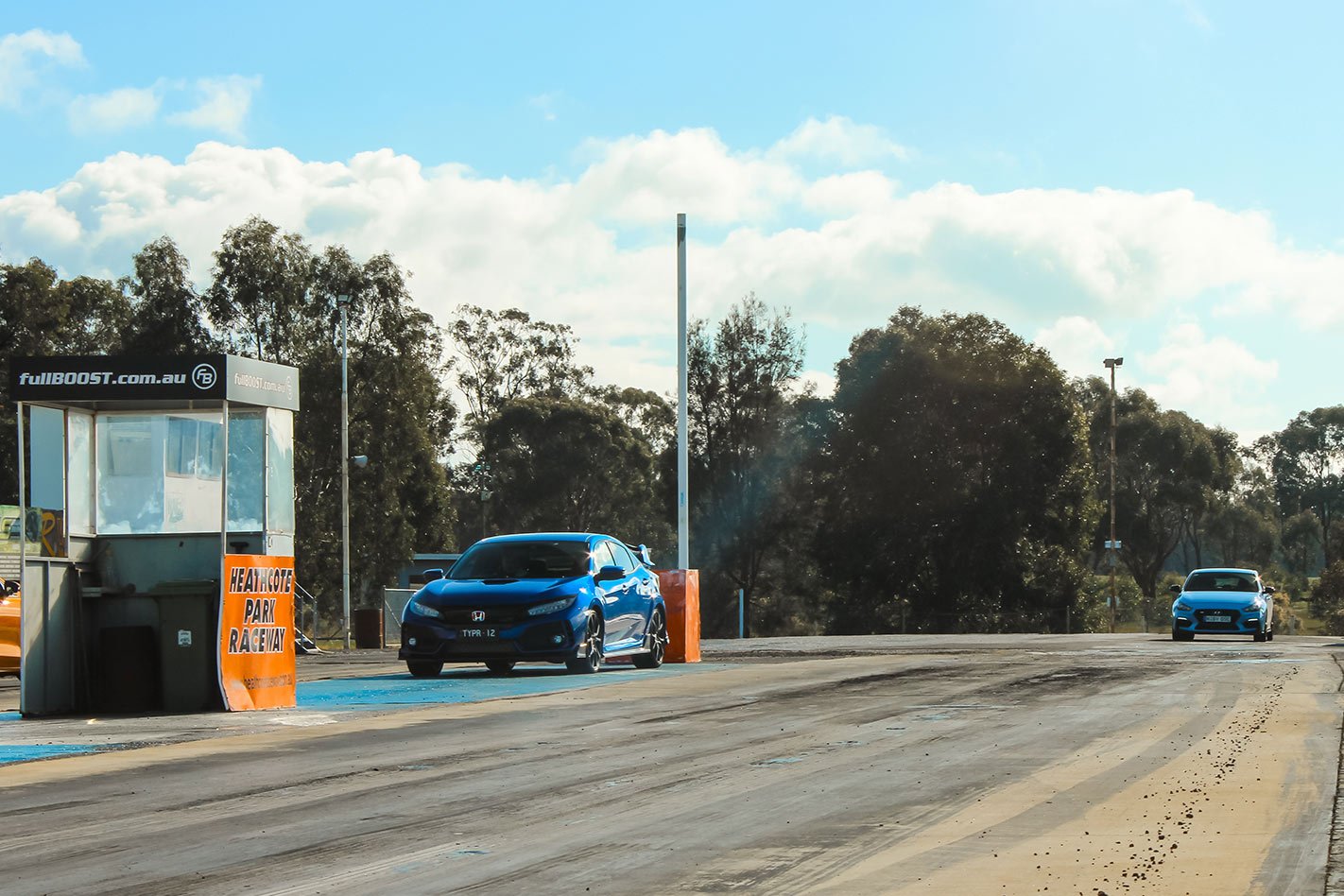
Both are powered by 2.0-litre turbocharged four-cylinder engines, transferring more than 200kW to the front tyres via a six-speed manual gearbox.
The Honda has the power advantage, with 228kW/400Nm, while the Hyundai has claimed outputs of 202kW/353Nm. The i30 achieves peak torque quicker, but the Honda has a larger tyre footprint.
This should be interesting.
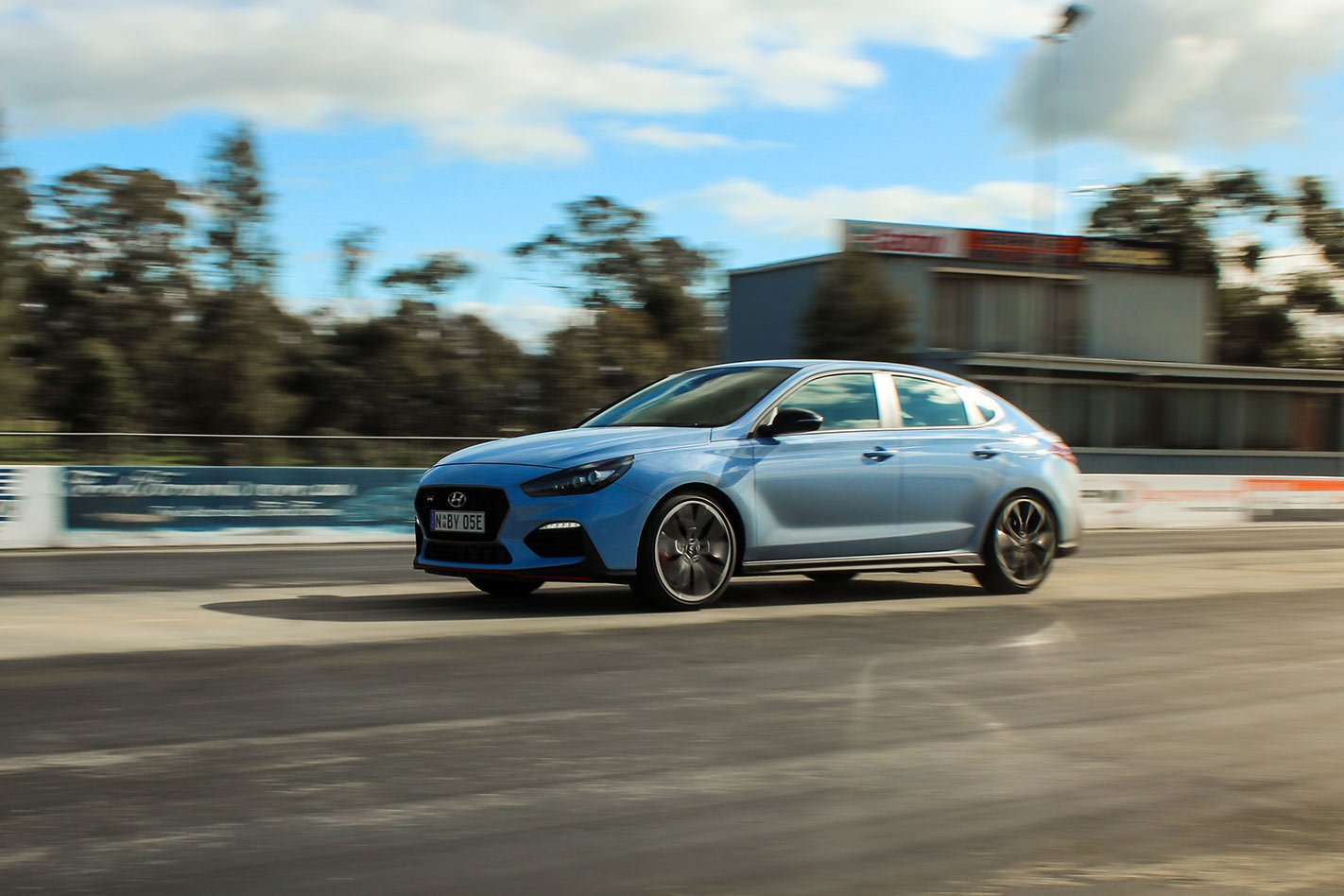
Off the line, it is the Hyundai that has a brief early advantage, cracking 20km/h a tenth faster than the Honda.
However, after that, the Civic Type R starts putting its power to the ground, and begins hauling itself into the lead.
The Honda is one tenth quicker to 60km/h, and by time three digits appear on the speedo, it’s earned an advantage of 0.3 seconds.
From a standing start, the Hyundai cracks 100km/h in a respectable 6.3 seconds, with the Honda taking just six seconds flat.
If you have no desire to hold onto your licence, the Type R will crack 140km/h in 10.1 seconds, while the Hyundai takes 10.7 seconds.
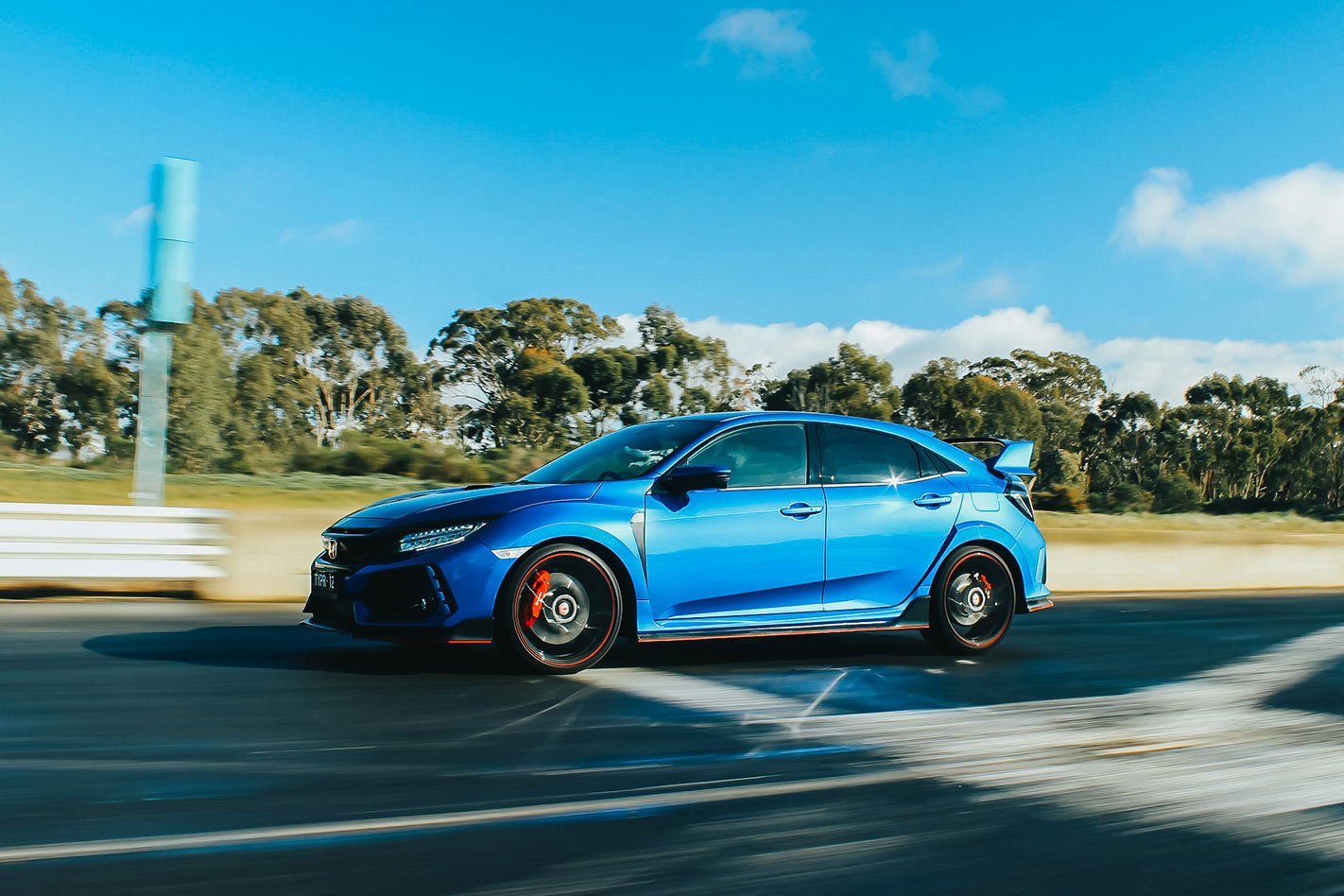
Just 13.8 seconds after launch the Civic Type R crosses the 400 metre beams, with a trap speed of 170.2km/h. The Hyundai is half a second behind at this point, and travelling 10km/h slower (14.3 seconds @ 161.1km/h).
While the drag race is over at that point, with the Honda taking a clear advantage, it’s not where Wheels’ performance testing stops.
Deputy editor Andy Enright was at the helm for our instrumented tests, keeping his right foot planted all the way to 200km/h+. The Honda managed to see the double tonne in 20.7 seconds, while the Hyundai cracked the same figure in 23.2 seconds.
The Heathcote circuit had been peppered with rain the morning of our scheduled testing, making things challenging for Enright.
“As exercises in frustration go, trying to launch powerful front-drive hot hatches on a damp and cold dragstrip is right up there,” he explained.
“Attempting to take the front tyres right up to the limit of adhesion and hold it in that paper-thin sweet spot through the first three gears resulted in more than a few aborted runs in both the Civic and the i30N.
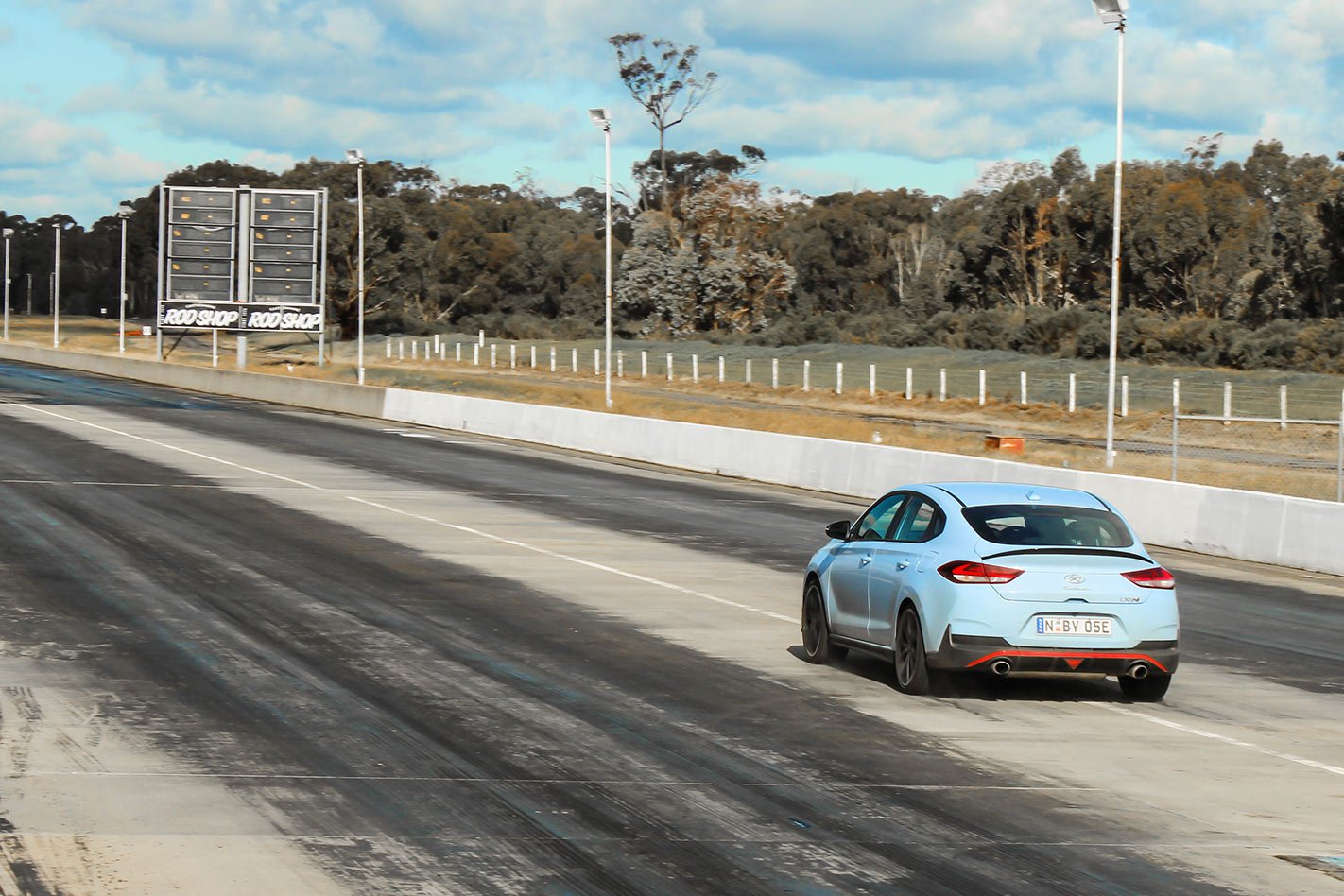
“Looking back at my first runs, the best I could get from the Hyundai was 7.6 seconds, a massive 1.4 seconds off the factory claim. Moving off the rubbered-in section of the strip to a piece of virgin concrete helped traction, and as the wind slowly dried the track to a patchwork of wet and dry, the times tumbled.
“It took the seventh run to log a 6.3sec run to 100km/h which, in these conditions, represented a mere 0.1sec down on the factory figure.
“I felt the i30N had excelled itself here. At high speed on the strip, it felt as if there was a slight lack of top-end grunt, and the feel of the gearbox was such that you were never 100 percent sure if the shift into third was good or not.
“Once the Civic’s Conti’s had warmed through a bit, it was actually an easier thing to get off the line cleanly, with the throttle pedal modulation better allowing you to keep it near the threshold of wheelspin. A best of 6.0sec to 100km/h saw it put clear air between it and the Hyundai, and the impression of potency only grew during the high-speed runs.
“Checking back on the figures was instructive. The Type R took 14.7sec to run from 100 to 200km/h whereas the Hyundai took more than two seconds longer for this increment at 16.9sec. It’s here more than anywhere that the Civic’s additional 26kW made itself apparent.
“Commonalities? Neither of the two hatches displayed much in terms of torque steer and neither had a traction control system so clever that you could lean on it for the best possible launch in the tricky conditions.
“There wasn’t a lot between the two cars’ braking performance, with their best stopping distances from 100km/h varying by a mere 400mm (i30 N 35.9m, the lighter Civic 35.5m). Of the two cars the Type R is the easier to get a respectable time out of when its tyres are warm, but the Pirelli P Zero rubber of the Hyundai seem to come into their window a bit quicker than the 20-inch ContiSport Contact 6 hoops of the Honda.”
Hyundai i30 N Fastback specs and performance data
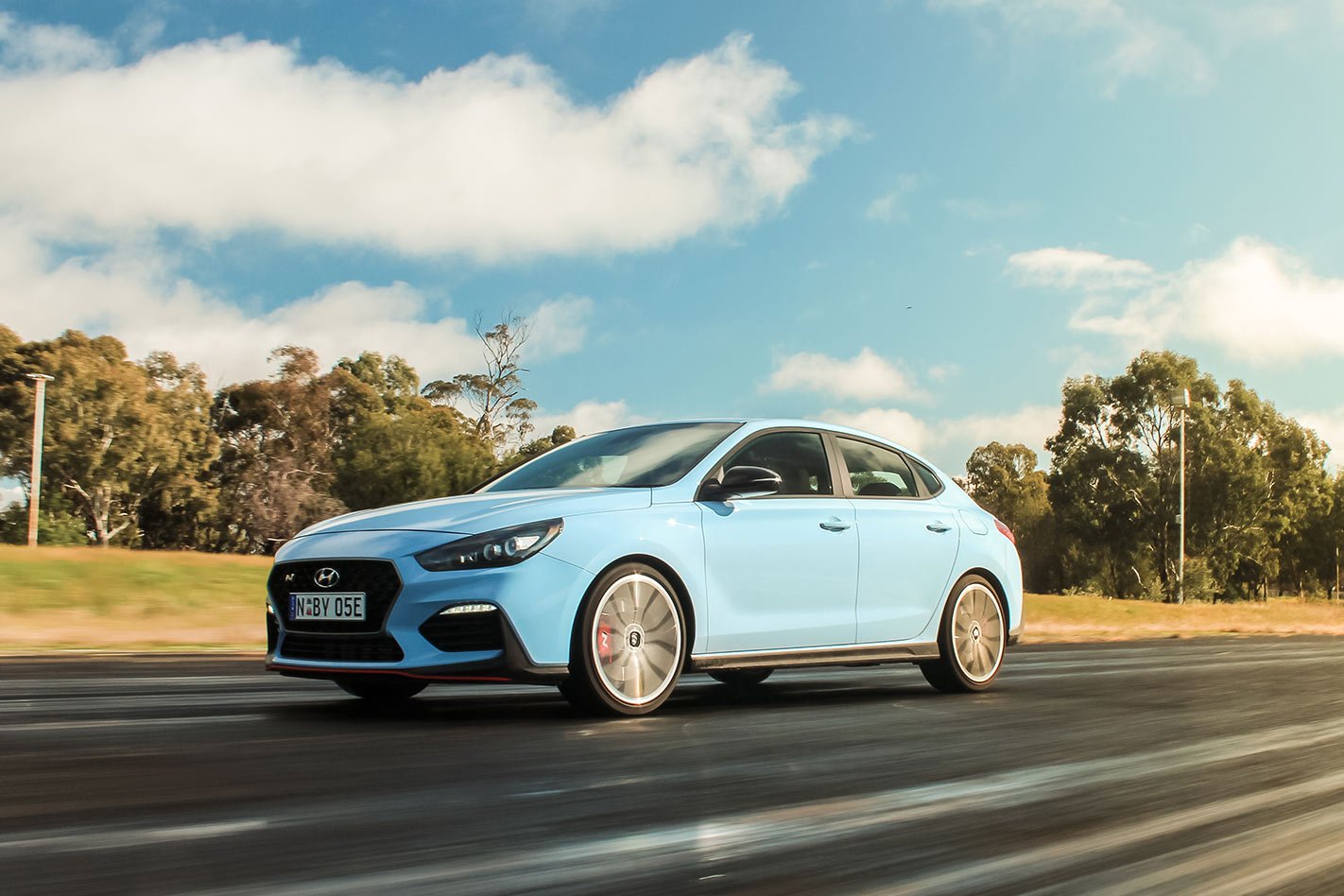
Price: $42,910
Engine: in-line 4cyl, dohc, 16v, turbo
Layout: front engine (east-west), front drive
Capacity: 1998cc
Power: 202kW @ 6000rpm
Torque: 353Nm @ 1450-4700rpm
Gearbox: 6-speed manual
Weight: 1441kg
Tyres: Pirelli P Zero (235/35/R19)
Power-to-weight: 140kW per tonne
Redline/cut-out: 6800/6800rpm
Speed at indicated 100km/h: 97
0-20km/h: 0.9sec
0-40km/h: 2.0sec
0-60km/h: 3.3sec
0-80km/h: 4.5sec
0-100km/h: 6.3sec
0-120km/h: 8.3sec
0-140km/h: 10.7sec
0-160km/h: 14.2sec
0-180km/h: 18.2sec
0-200km/h: 23.2sec
0-400m: 14.3sec @ 161.1km/h
80-120km/h: 3.8sec
100km/h-0: 35.9m
Honda Civic Type R specs and performance data
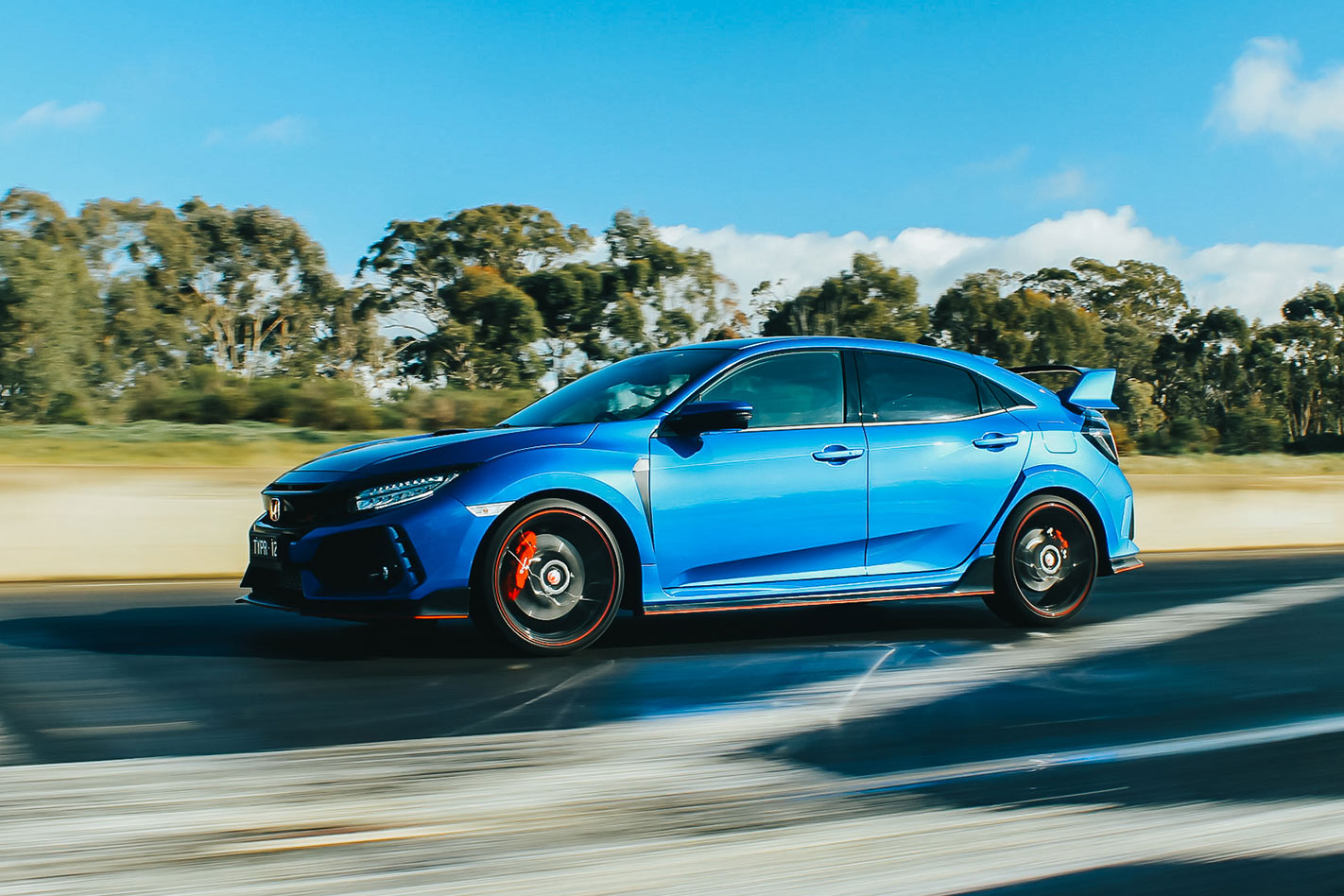
Price: $51,990
Engine: in-line 4cyl, dohc, 16v, turbo
Layout: front engine (east-west), front drive
Capacity: 1996cc
Power: 228kW @ 6500rpm
Torque: 400Nm @ 2500-4500rpm
Gearbox: 6-speed manual
Weight: 1396kg
Tyres: Continental ContiSport Contact 6 (245/30/ZR20)
Power-to-weight: 163kW per tonne
Redline/cut-out: 7000/7000rpm
Speed at indicated 100km/h: 94
Standing-start acceleration
0-20km/h: 1.0sec
0-40km/h: 1.9sec
0-60km/h: 3.2sec
0-80km/h: 4.4sec
0-100km/h: 6.0sec
0-120km/h: 7.6sec
0-140km/h: 10.1sec
0-160km/h: 12.4sec
0-180km/h: 16.2sec
0-200km/h: 20.7sec
0-400m: 13.8sec @ 170.2km/h
80-120km/h: 3.2sec
100km/h-0: 35.5m


